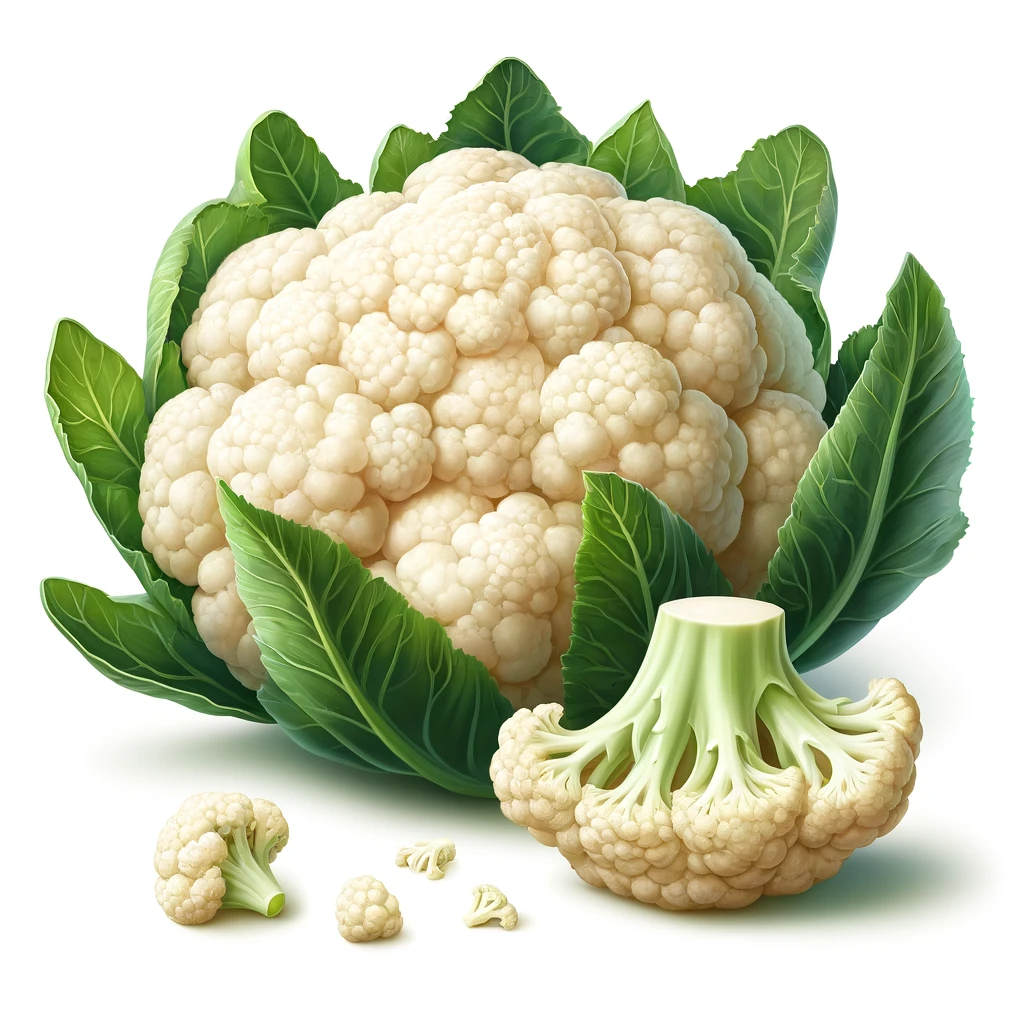In the realm of vegetables, few can match the versatility and nutritional prowess of cauliflower. Often overlooked in favor of its more colorful counterparts, cauliflower quietly boasts an impressive array of nutrients and health benefits that make it a valuable addition to any diet.
Nutritional Content of Cauliflower
Cauliflower is low in calories but high in nutrients, making it an excellent choice for those looking to boost their health without adding extra calories. A single cup (about 100 grams) of cauliflower provides:
- Vitamins: It is particularly rich in vitamin C, providing about 77% of the recommended daily intake (RDI) per serving. Vitamin C is essential for immune function, skin health, and wound healing.
- Minerals: Cauliflower contains a good amount of folate, which is important for cell division and the production of DNA. It also provides smaller amounts of potassium, magnesium, and calcium.
- Phytonutrients: It contains various phytonutrients such as beta-carotene, beta-cryptoxanthin, and caffeic acid, which have antioxidant properties that help protect cells from damage caused by free radicals.
- Anthocyanins: While cauliflower itself is not colorful, certain varieties like purple cauliflower contain anthocyanins, which are antioxidants known for their anti-inflammatory properties.
- Macronutrients: It is low in carbohydrates and sugars, making it suitable for low-carb diets. It also provides a small amount of fiber, which is beneficial for digestive health.
Health Benefits of Cauliflower
- Antioxidant and Anti-inflammatory Properties: The antioxidants and phytonutrients in cauliflower help reduce inflammation and oxidative stress in the body, which are linked to chronic diseases such as heart disease and arthritis.
- Supports Digestive Health: The fiber content in cauliflower aids in digestion and promotes regular bowel movements, contributing to overall gut health.
- Promotes Heart Health: Cauliflower contains compounds like sulforaphane and glucoraphanin, which may help reduce the risk of heart disease by improving blood pressure and cholesterol levels.
- Cancer-Fighting Potential: Some studies suggest that the sulfur compounds in cauliflower, such as sulforaphane, may have protective effects against certain types of cancer by inhibiting the growth of cancer cells and promoting their destruction.
- Weight Management: With its low-calorie and high-nutrient profile, cauliflower can be a valuable addition to weight loss diets, helping individuals feel fuller for longer without consuming excess calories.
Conditions Cauliflower May Alleviate
- Inflammatory Conditions: Due to its anti-inflammatory properties, cauliflower may help alleviate symptoms associated with inflammatory conditions such as arthritis and inflammatory bowel diseases.
- High Blood Pressure: The potassium content in cauliflower can contribute to lower blood pressure levels, potentially reducing the risk of hypertension.
- Digestive Issues: The fiber in cauliflower supports healthy digestion and may relieve constipation and promote regularity.
Incorporating Cauliflower Into Your Diet
Cauliflower’s mild flavor and versatile texture make it easy to incorporate into various dishes. Here are some delicious ways to enjoy this nutritious vegetable:
- Cauliflower Rice: Substitute rice with grated cauliflower for a low-carb alternative.
- Cauliflower Mash: Blend cooked cauliflower with garlic and herbs for a creamy mashed potato substitute.
- Roasted Cauliflower: Toss florets with olive oil, salt, and pepper, then roast until golden brown for a tasty side dish.
- Cauliflower Pizza Crust: Use cauliflower as the base for a healthier pizza crust option.
- Cauliflower Soup: Blend cauliflower with vegetable broth and spices for a comforting and nutritious soup.
Scientific Insights
Recent nutritional science underscores the benefits of incorporating cauliflower into a balanced diet. Its rich array of vitamins, minerals, and phytonutrients supports optimal health and well-being. Whether you’re aiming to improve heart health, manage weight, or enhance digestive function, cauliflower offers a nutrient-packed solution backed by scientific research.
In conclusion, while cauliflower may not be the most colorful vegetable on your plate, its nutritional content and health benefits are nothing short of impressive. By regularly including cauliflower in your meals, you can harness its powerful nutrients to support your journey towards better health and vitality.
Remember, choosing foods like cauliflower that are rich in essential nutrients is a simple yet effective way to nourish your body and optimize your overall well-being. Embrace the cauliflower revolution and enjoy the benefits it brings to your health—one delicious bite at a time.





